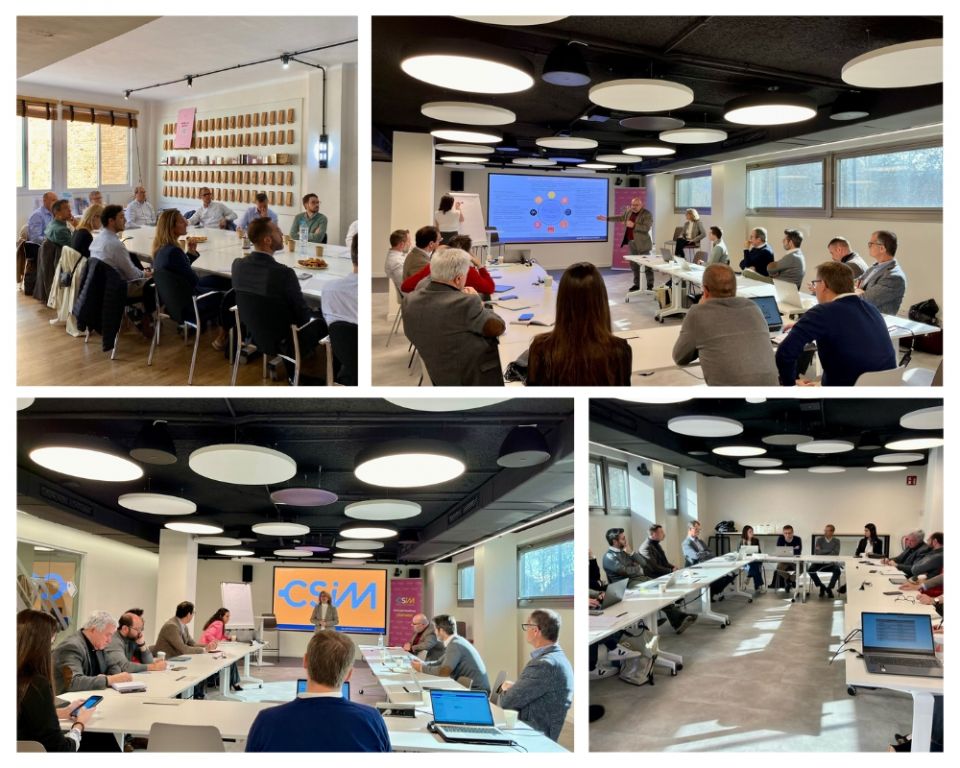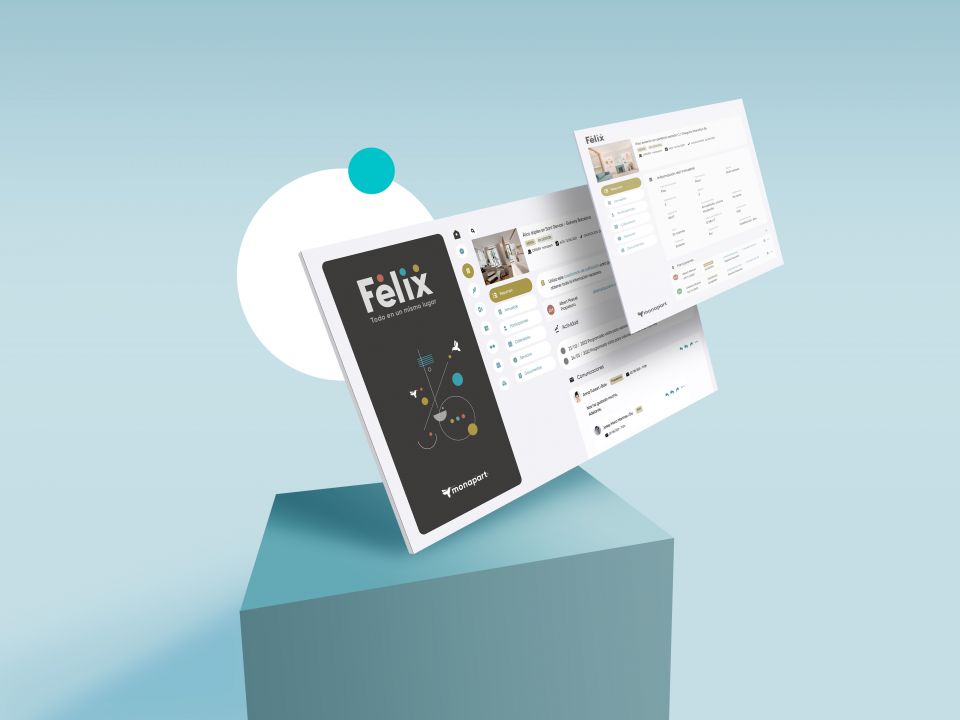Monapart participates in the Conference of the Cluster of Real Estate Services (CSIM)
We take a look at the main reflections on the challenges and opportunities facing the real estate sector.

Recently, I had the opportunity to attend the Clúster de Servicios Inmobiliarios (CSIM) conference, which brings together the companies and agents that make up the real estate services value chain with the dual aim of reflecting on the current and future challenges of the business and identifying strategies for the future.
As a partner of Monapart, a company that is deeply committed to digital transformation and innovation in the real estate sector, this conference proved to be a valuable platform to share experiences, learn about new strategies and, above all, work together with other players in the sector to address the challenges that affect us all.
The main challenges for real estate professionals
The real estate sector is undergoing a profound transformation. In a context where technology and digitalisation play a central role, the adaptation of business models, the optimisation of internal processes and the improvement of the customer experience for the sake of maximum personalisation of the service have become unquestionable priorities to remain competitive in an increasingly saturated and customer-oriented market.
In addition, improving the customer experience is an ongoing challenge. Offering additional services around the real estate transaction, such as removals, financing, refurbishment and after-sales services, not only adds value but also creates a stronger and longer lasting relationship with the customer.
In this scenario, the workshops at the CSIM have allowed us to identify three key aspects for a sustainable future: the creation of commercial alliances, the digitalisation of processes and the training of real estate talent.
The importance of business partnerships
One of the most relevant aspects discussed during the CSIM conference was the importance of establishing commercial alliances between the different actors in the value chain of real estate services in order to offer a truly comprehensive service to the client.
The incorporation of new services during the transaction, such as insurance, mortgages, removals, financing for small refurbishments, and legal services, can attract more buyer leads and enhance their buying experience. In-house development of these services is one option, but it is also possible through agreements with third party specialists, especially in the proptech environment, which can give us a competitive advantage.
When it comes to attracting leads from buyers and sellers, a critical aspect in the real estate sector, we remain highly dependent on large portals, which increases the costs of customer acquisition. However, during the conference, innovative ideas emerged on how to reduce this dependency, again through partnerships between companies in the sector. One prominent example was the creation of collaborative portals, such as Herewhich was created in France and has managed to position itself as a viable alternative to the large international portals.
Estate agents and property managers
Among the most effective collaborations is the relationship between estate agents and property managers. Although they operate in different areas, these two sectors have the ability to complement each other significantly. Perceived as key players in the transactional arena, property managers provide a valuable source of leads that real estate agents can leverage to grow their business. Formalising one-to-one agreements to manage these portfolios optimises efficiency and significantly improves the quality of service provided to the client.
When property managers work together with real estate agents, they can add extra value to their services, managing the sale or rental of their clients' properties more quickly and efficiently because they are backed by a strong brand and world-class commercial and transactional tools. This approach not only improves operational efficiency, but also creates a more cohesive and productive working environment.
In addition, these partnerships facilitate more effective exploitation of the data shared between actors in the value chain, allowing for a deeper understanding of customer needs. This results in a more personalised service, which has become a key competitive advantage in an increasingly competitive and demanding market.
At Monapart, we have experienced first-hand the benefits of this type of alliance. We have established strategic agreements with several property administrators, which has allowed us to strengthen our sales team and develop solid customer acquisition strategies. These collaborations have expanded our client portfolio and allowed us to offer a more complete and personalised service.
Digital transformation as a pillar of the future of real estate
One of the main consensus of the CSIM conference was the imminent need to digitise and optimise internal processes. Companies that do not adopt advanced technologies such as big data, artificial intelligence or adapted CRMs are doomed to be left behind.
At Monapart, we have made a significant investment in the development of our CRM Felix, specific technology for real estate agents as it allows the lifecycle of a real estate transaction to be managed in a comprehensive manner. This tool, in addition to facilitating the participation of all parties involved in a transaction, considerably improves the efficiency of our agents, providing a more transparent and effective experience for our clients. In short, the technology greatly improves and optimises internal operations, resulting in a seamless, agile and fully controlled customer experience.

It is essential to put the customer at the centre of the business. It is no longer enough to offer a good service but to provide a personalised experience tailored to the specific needs of each customer.
As real estate professionals, we must transform the way we approach real estate transactions and also rethink relationships and partnerships within and outside the industry. Customer satisfaction is the cornerstone on which present and future business is built.
Real estate talent
Generating future business, or in other words, attracting leads from sellers, is a priority for real estate professionals. The focus should be on recruitment, retention and further training of estate agentsAs the main attractors, they are the driving force of any real estate business and essential to maintain a competitive advantage.
At Monapart we firmly believe that the key to our success lies in the creation of an differential value proposition for the success of our partner agentswho are in direct contact with clients. Our strategy for attracting and retaining talent is based on providing continuous training, advanced legal, marketing and technological support and a collaborative work environment that fosters their motivation, commitment and pride in belonging to a professional community.
This professional community (we call it the Community of 1TP5GoodAgent) provides them with an environment where they can share experiences and support each other, which is crucial for staff retention and motivation. This approach not only improves operational efficiency, but also creates a more cohesive and productive working environment.
In this sense, the CSIM conferences have provided us with new ideas on how to further improve this value proposition, always aligned with customer needs and market trends.
Monapart's strategy, implemented since 2020, is closely aligned with the conclusions of the CSIM based, as we have seen, on the structuring of strategic alliances with other operators linked to housing; the digitalisation of processes; and the attraction and retention of real estate talent.
These pillars enable us to continue to operate successfully in today's challenging context.





